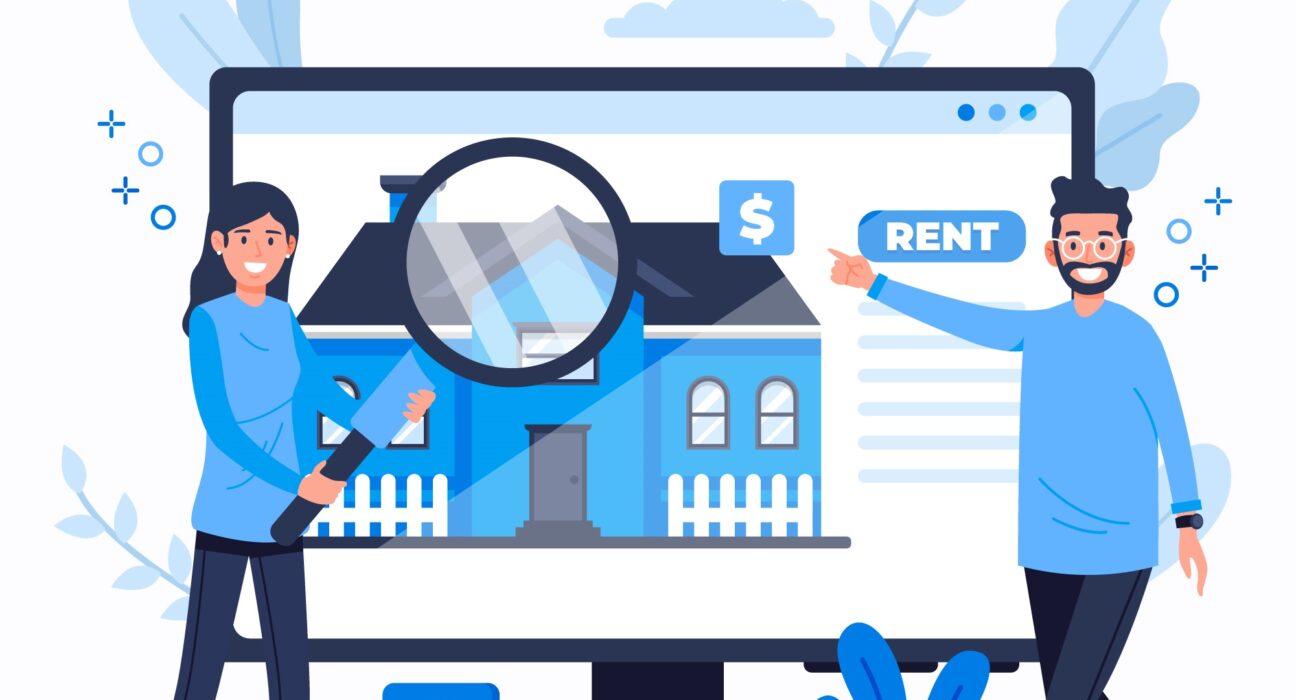In the competitive real estate industry, startups face the unique challenge of building visibility, generating trust, and attracting clients in a space where established players already dominate. Traditional marketing methods like print ads, billboards, and TV spots often require significant budgets that most startups simply can’t afford. This is where Search Engine Optimization (SEO) comes in as a game-changing tool. By leveraging the power of SEO, real estate startups can compete effectively with established brands, attract qualified leads, and create a long-term, cost-efficient marketing strategy that fuels growth.
For those just entering the market, understanding the role of seo services for real estate is critical. These services are designed to optimize your website so that it appears prominently when potential buyers, renters, or investors search for properties online. Whether it’s local SEO to attract clients in a specific city, content marketing to establish authority, or technical SEO to improve site speed and user experience, tailored SEO services ensure that startups are not lost in the shadows of big real estate firms. With most property searches beginning online today, being visible in search results isn’t optional—it’s essential for survival and growth.
Why SEO Matters in the Real Estate Industry
The real estate industry is inherently local, with buyers and sellers focusing on specific regions, neighborhoods, or even streets. When someone searches “apartments for rent in Mumbai” or “houses for sale in Los Angeles,” they want immediate, localized results. SEO helps startups align with these localized search queries, ensuring that their listings appear in front of the right audience.
Moreover, SEO gives startups a chance to level the playing field. Unlike paid ads that require continuous spending, SEO creates sustainable visibility. A well-optimized site continues to attract organic traffic long after the initial investment, allowing startups to compete with larger agencies without burning through their budgets.
Benefits of SEO for Real Estate Startups
1. Enhanced Online Visibility
Most property buyers start their journey on Google. If your real estate startup’s website isn’t visible in the first few search results, you’re essentially invisible to potential clients. SEO ensures that your listings, blog posts, and service pages appear at the top, capturing attention at the very first stage of the buying process.
2. Cost-Effective Marketing
Compared to offline advertising or even PPC campaigns, SEO offers long-term returns. Once your website ranks well, you receive free, organic traffic. This is particularly valuable for startups that need to maximize their marketing budgets.
3. Building Trust and Credibility
A high-ranking website is often perceived as more credible. When potential clients see your brand at the top of search results consistently, they associate your startup with trustworthiness and authority in the market.
4. Targeted Leads
SEO allows startups to target specific keywords like “luxury villas in Bangalore” or “affordable condos in Chicago.” This ensures that the visitors who find your site are already interested in your specific offerings, making them more likely to convert.
5. Local Domination
Real estate is hyperlocal. Local SEO strategies, such as optimizing Google Business Profiles, collecting customer reviews, and creating neighborhood-specific content, allow startups to dominate their target areas and become the go-to real estate resource in their locality.
Key SEO Strategies for Real Estate Startups
1. Local SEO Optimization
Local SEO is perhaps the most crucial aspect of real estate SEO. Buyers and sellers almost always search with local intent. Optimizing for city-specific keywords, embedding maps, ensuring accurate NAP (Name, Address, Phone number) information, and encouraging satisfied clients to leave Google reviews can significantly boost local rankings.
2. High-Quality Content Creation
Content is the backbone of SEO. Real estate startups should invest in creating blogs, market reports, neighborhood guides, video tours, and FAQs. For example, a blog post titled “Top 10 Affordable Neighborhoods in New York for First-Time Buyers” not only provides value but also ranks for long-tail keywords that attract niche audiences.
3. Mobile-Friendly and Fast Websites
Most users search for properties on their mobile devices. If your website isn’t optimized for mobile or takes too long to load, potential clients will quickly move to a competitor. Technical SEO, such as improving site speed and mobile responsiveness, ensures a seamless user experience.
4. Optimized Property Listings
Each property listing should be optimized with relevant keywords, meta descriptions, high-quality images, and even video content. Structured data (schema markup) can also be used to help search engines understand and display listings more effectively.
5. Backlink Building
Building high-quality backlinks from authoritative websites boosts your domain authority. Collaborating with local blogs, news portals, or real estate directories can help startups build a strong backlink profile that enhances credibility and rankings.
6. Social Media Integration
While social media doesn’t directly influence SEO rankings, it plays a vital role in amplifying reach. Sharing blogs, videos, and property updates on platforms like Instagram, LinkedIn, and Facebook can drive traffic back to your website, indirectly boosting SEO.
Challenges Real Estate Startups Face Without SEO
-
Limited Visibility – Without SEO, your website may never show up when potential buyers are actively searching for properties.
-
Dependence on Paid Ads – Relying solely on paid campaigns can become expensive and unsustainable in the long run.
-
Lower Credibility – A website that doesn’t rank well may seem less trustworthy compared to competitors who dominate search results.
-
Missed Local Opportunities – Startups without a strong local SEO strategy lose out on attracting clients in their immediate target areas.
Real-World Impact of SEO for Real Estate Startups
Imagine two real estate startups operating in the same city. One invests in SEO from the beginning, optimizing its website, publishing neighborhood guides, and building local backlinks. The other relies solely on word-of-mouth and social media. Over time, the first startup begins to rank for keywords like “best apartments in [city]” and “real estate agents near me.” They start receiving consistent organic traffic, inquiries, and conversions, all while reducing dependency on paid advertising.
The second startup, meanwhile, struggles with visibility and must continually spend money on ads to remain relevant. The difference in growth, credibility, and ROI becomes evident within a year. This example highlights how SEO isn’t just an option—it’s a necessity for long-term sustainability in real estate.
How to Get Started with Real Estate SEO
-
Keyword Research – Identify the most relevant and high-value keywords for your locality and niche. Tools like SEMrush, Ahrefs, and Google Keyword Planner can help.
-
Audit Your Website – Conduct a thorough SEO audit to identify technical issues, missing metadata, or poor site speed.
-
Develop a Content Plan – Create a calendar of blogs, guides, and multimedia content that answers client queries and highlights your expertise.
-
Optimize Listings – Ensure that each property listing has unique descriptions, professional images, and keyword-rich content.
-
Track and Measure Results – Use tools like Google Analytics and Search Console to monitor traffic, leads, and keyword rankings.
Long-Term Value of SEO in Real Estate
SEO is not a one-time project—it’s an ongoing process. The longer you invest in optimizing your website, the stronger your rankings become. Over time, this builds a consistent pipeline of leads without relying solely on advertising spend.
For real estate startups, this long-term value is crucial. While paid ads stop generating traffic the moment you stop paying, SEO continues to deliver results for years. It helps establish a startup not just as another agency, but as a thought leader and trusted advisor in the property market.
The Future of SEO in Real Estate
As technology evolves, so does SEO. Voice search, AI-driven recommendations, and virtual tours are shaping how people look for properties online. Startups that adapt their SEO strategies—optimizing for conversational queries, using AI tools for keyword research, and embedding immersive content—will stay ahead of the curve.
Additionally, search engines increasingly prioritize user experience. This means factors like site speed, mobile optimization, and engaging multimedia content will continue to play a central role in determining rankings. For real estate startups, staying updated with these trends ensures they remain competitive in a fast-changing digital landscape.
Conclusion
For real estate startups, the journey to success hinges on visibility, trust, and consistent lead generation. Traditional marketing alone can’t deliver these results sustainably in today’s digital-first world. This is where SEO services for real estate become indispensable. By optimizing websites for search engines, creating valuable content, targeting local audiences, and building credibility online, startups can carve out their space in a crowded industry.
SEO is not a quick fix but a long-term investment. It helps startups generate organic traffic, attract qualified leads, and build a reputation that grows stronger over time. With the right SEO strategies, even small real estate startups can compete with industry giants, achieve consistent growth, and establish themselves as trusted players in their markets.
In short, the importance of SEO for real estate startups cannot be overstated. It’s the foundation of digital visibility, a cost-effective lead generation engine, and a critical component of long-term success. Those who embrace SEO early on will not only survive but thrive in the ever-evolving real estate industry.




